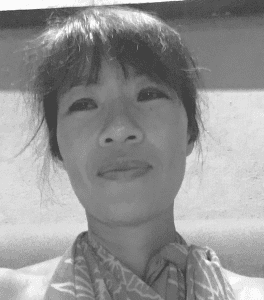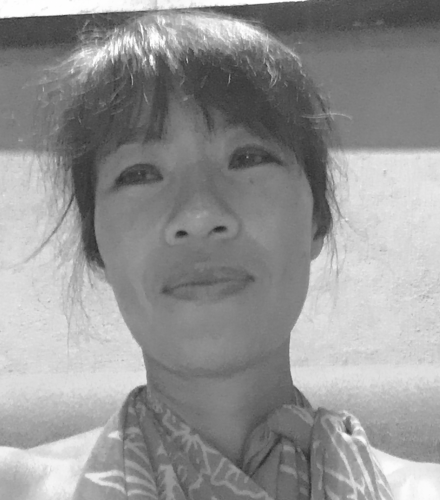Meet the Irregulars: Eden Baylee
R. B. Wood


Thirteen Questions with EDEN BAYLEE
Fortunately, I don’t have many. I’m in the process of finishing my STRANGER trilogy. The first book, Stranger at Sunsetreleased nearly five years ago already! The next book, A Fragile Truceis due out shortly.
- Does writing energize or exhaust you?
Both. As I often write into the wee hours, I’m sometimes exhausted by the process. Afterward, I can’t fall asleep because I’m so energized by the words I’ve written. It’s a strange dichotomy, like exercise which fatigues the muscles but also gives one energy.
- What kind of research do you do, and how long do you spend researching before beginning a book?
I like to dive right in to writing, so my research is done as I write. If I were to become an expert on a subject before beginning a book, I might never start! Because I’m a “pantser,” I discover so much in the process of research, and this sometimes moves me in different directions. Firsthand experience is the best way to get the facts straight, so I do this whenever possible—especially when it comes to location for a story. In recent years, trips to Indonesia, Cuba, and parts of the US have enabled me to write stories with more detail and greater accuracy. Aside from this, the majority of my research is done via the Internet and reading of texts.
- How do you balance making demands on the reader with taking care of the reader?
Some authors want to make sure their readers are able to follow their narrative at every juncture. I’m not sure how they manage this, but I’m not one of those authors. By committing to myself to write the best story possible, I fulfill my obligation as an author. Beyond that, readers take care of themselves, and I give them a lot of credit to be able to do so.
- Do you view writing as a kind of spiritual practice?
No, I view writing as my profession. It’s work. Meditation and yoga fulfill my spiritual disciplines.
- Did you ever consider writing under a pseudonym?
Yes, and I still do. When I started writing, my mentor told me it would be best to write under a pseudonym for my genre—erotica. My family and friends already knew what I was writing, so I had no reason to hide from them, which is probably why most people use an alternate name. For me, it was primarily to protect my identity from strangers I’d rather not associate with.
After I started writing in the suspense genre, I considered reverting to my real name but decided against it. I’d always written in multiple genres anyway, particularly for the WordCount Podcast. I published these stories on my blog and introduced many readers of my erotica to them. It helped spread the word about my ability to tell a story, regardless of genre. Aside from this, it had also taken me some time to build a following of readers. I had no desire to spend a lot of time re-branding myself, so marketing the name of Eden Baylee as “author of multiple genres” works.
- What’s the most difficult thing about writing characters from the opposite sex?
I’ve written many male characters in my stories, even some from a male point of view. Often, we form opinions of the sexes from stereotypes—men are successful, insensitive, and aggressive, while women are caring, inclusive, and shopaholics. I’ve included perceived positive and negative traits for both, but they are all trappings. When we use clichéd beliefs in our writing, they dilute the authenticity of our characters and make them one-dimensional. As such, we should not pigeonhole our characters based on sex, since human traits are fluid.
- How many hours a day do you write?
I usually write between 3-5 hours daily. I use word count as a barometer for daily production. If I meet my 2000 word count for the day in less time, it gives me a bit of breathing room. Somedays I struggle for hours and produce very little; other days, I can hammer out a full chapter in less than thirty minutes.
- What period of your life do you find you write about most often? (child, teenager, young adult)
I relate strongly to the mid 30s-early 40s. This is primarily because the main character of my trilogy, Kate Hampton is in that age range, so getting into her head is important. When I wrote erotica, the characters were about a decade younger because those stories evoked a particular time in my own life.
- How do you select the names of your characters?
In a word—painstakingly! Names resonate with me in different ways, so I have to be sure I can inhabit a character for the entirety of a book. If I hate the name, it’s not going to be easy to write about that person. I have my own definition for what constitutes “strong” vs. “weak” names and will assign them accordingly. One quirk of mine is the naming of male characters I don’t like. They always begin with the letter “M”.
It’s a lesson not to piss off an author, as they will somehow write you into their stories!
- What was your hardest scene to write?
Violence against women is difficult for me, especially when I started by writing erotica— stories about love. When I write suspense in my short stories or novels, I purposely seek to tackle vile, violent, and sometimes grotesque scenarios. It’s a challenge, but one that I enjoy as I’m attracted to that darker side of storytelling.
In Stranger at Sunset, I included a scene of implied rape. It was a tough chapter to write, one that required restraint because I didn’t want to narrate a rape scene. Instead, I ratcheted up the tension with dialogue and mood leading up to the incident.
- Does your family support your career as a writer?
Yes. I had a career in banking for twenty years before embarking on writing. In many ways, I became a banker to please my parents. When I turned to writing, I was past the age where I needed my family’s support. Still, it’s good to have it.
- Do you believe in writer’s block?
YES! I answered this question differently several years back when I was a lot more cocky and publishing regularly. I said something like: You’ve never heard of “plumber’s block” so why do writers have “writer’s block?” The inference was that we don’t.
I’ve since learned that you can’t compare plumbing and writing. A plumber installs and fixes pipes, so if you have the proper tools to do so, you’re in business. As a writer of fiction, one of my biggest tools is imagination. The ability to create thought is not the same as wielding a hammer. When you write, you pluck thoughts and ideas from your brain and translate them as words to mean something.
Add to this, mental and physical health, which are both necessary to stay focused.
If any of these tools are not functioning for whatever reason, it can become impossible to write. I’ve had writer’s block for some time now. It’s crippled me in some ways, but it’s also humbled me. I realized that beating myself up over it only made matters worse. I now know it’s not for lack of dedication and desire that I can’t write, and I’ve been trying different things to get back on track. I’m happy to say it’s moving me in the right direction.
Bio
 Eden Baylee left a twenty-year banking career to write and is now a full-time author of multiple genres.
Eden Baylee left a twenty-year banking career to write and is now a full-time author of multiple genres.
She has written three collections of erotic novellas and flash fiction ~ SPRING INTO SUMMER, FALL INTO WINTER, and HOT FLASH.
In 2014, she launched the first novel of her STRANGER TRILOGY with Dr. Kate Hampton–a psychological mystery/suspense called “Stranger at Sunset.” In addition to working on her next novel, Eden created the LAINEY LEE SERIES about a feisty divorcée who finds adventure and romance in Hawaii.
An introvert by nature and an extrovert by design, Eden is most comfortable at home with her laptop surrounded by books. She is an online Scrabble junkie and a social media enthusiast, but she really needs to get out more often!


